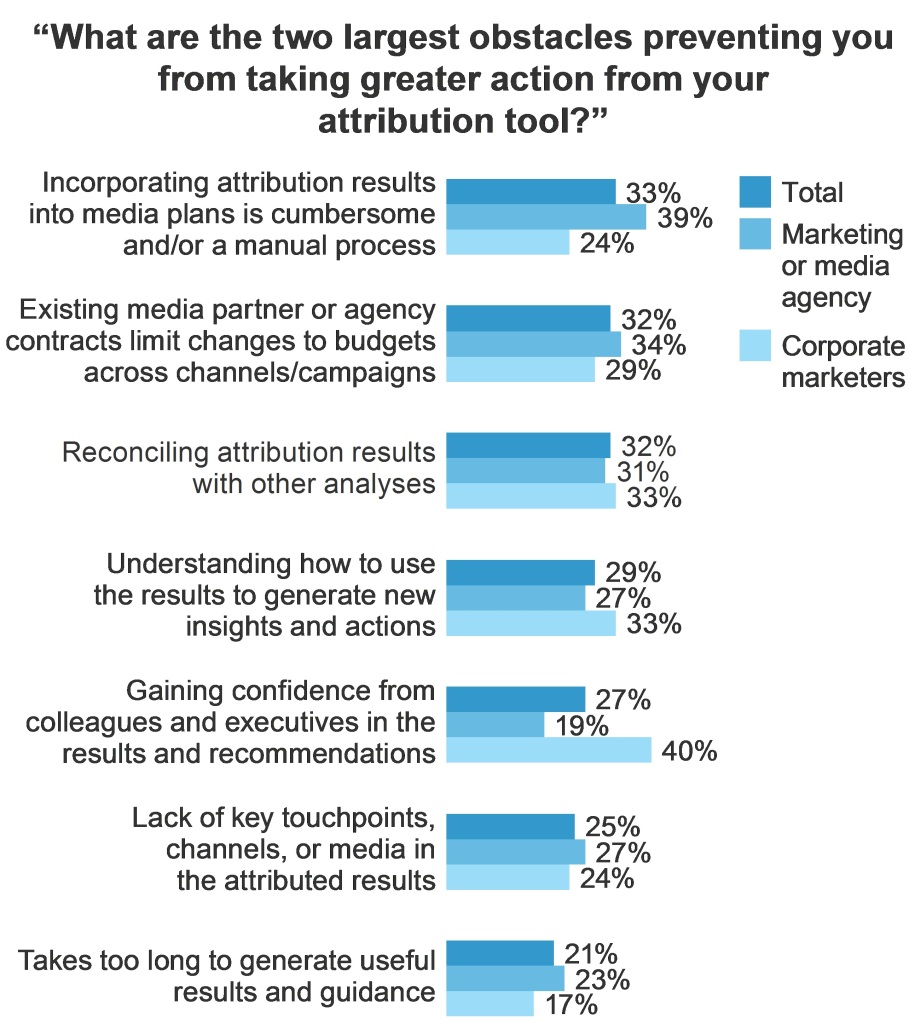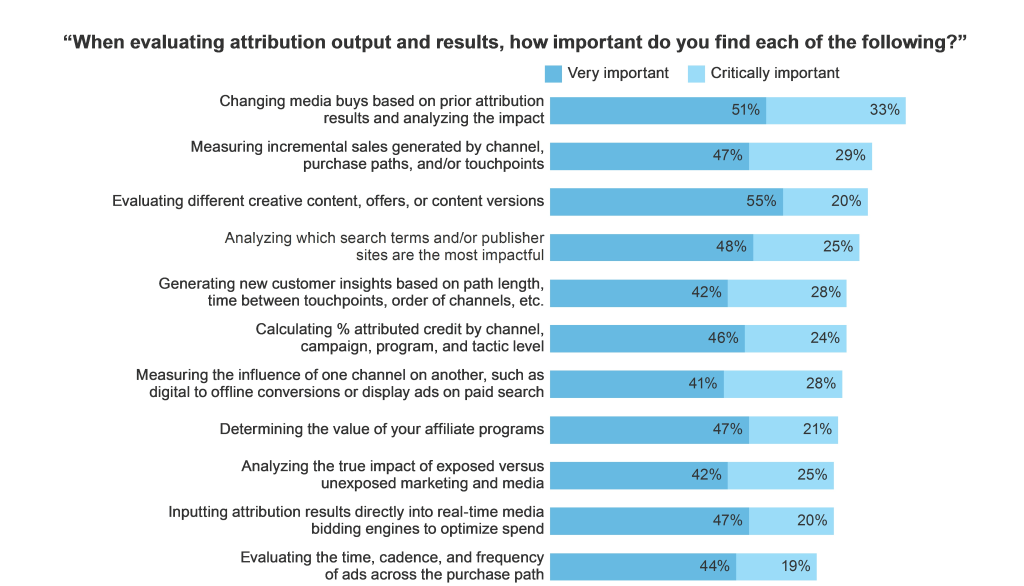Many marketers are still struggling to move beyond basic approaches to attribution. But just how far behind are we and what are the main obstacles?
To try and get some answers, Kenshoo commissioned Forrester Consulting to conduct a survey of more than 100 marketers, advertisers, and customer insight professionals across all industries in UK, US, and German organizations with marketing budgets of more than £3.1 million.
Three key findings stood out:
1. Approaches to measurement are still basic
On average, marketers use 13 marketing communications channels within their programme but 40% of these are not included in their attribution measurements. Furthermore, 28% of the sample still use single click attribution methods (where the first or last click gets all the credit for a conversion) which risks undervaluing the complex interplay of channels within the customer journey.
Over three quarters (76%) of marketers do not measure the simultaneous impact of channels and campaigns, missing out on the cross-campaign effect on conversions. Clearly, cross-channel attribution is still in its infancy – only 10% have been using it for over four years, with two thirds (67%) having two years or less experience.
However, despite understanding the importance of cross-channel attribution, just 1 in 9 (11%) of marketers use advanced algorithmic attribution methods, as recommended by Forrester. Algorithmic attribution uses machine learning technology which optimises the attribution model dynamically by learning from historical conversion data.
2. People and processes are blocking change
Simply implementing an attribution tool is not always enough to drive change. Obstacles, principally around people and processes, are preventing organisations turning insight into real-time action.
40% of the survey sample said one of the major obstacles to introducing more sophisticated attribution techniques was convincing colleagues of the validity of recommendations. 33% admitted they don’t clearly understand how to use attribution results to generate new insights. The same number found it difficult to reconcile attribution results.
Nearly 4 in 10 (39%) of agency marketers felt they were held back by cumbersome or manual processes when it came to incorporating attribution results into media plans. Additionally 34% felt that existing client contracts limited the ability to make cross-channel/campaign budget changes, holding back real-time flexibility.
The good news for both corporate and agency marketers is that these challenges diminish with time. Marketers who had been using attribution for at least a year were significantly more satisfied with their ability to take action, than those with under 12 months experience.
3. Acting quickly on attribution data delivers real benefits
Getting a deeper understanding of customer behaviour and adjusting marketing in real-time is vital in today’s markets. Those respondents who were able to act quickly on their attribution results felt that they could make more confident, detailed and faster decisions, at both a strategic and tactical level. Nearly half (49%) adjust their long-term media plans, 38% change media spend, 34% compare the performance of different campaign measures, and 23% take some action in real time.
The most satisfied marketers shared two similarities. They measured more channels in their attribution models (around two more than those that were less satisfied), and had implemented attribution for over a year. This demonstrates the importance of understanding the impact of cross-channel attribution, compared to simple last click, first click models.
Additionally, the ability to take action quickly on insights impacted satisfaction. 42% of respondents were able to adjust media strategies at least several times a day – and 75% of this group said they were very or completely satisfied with their attribution model.
Forrester outlines four key recommendations for implementing cross-channel attribution:
- Create a realistic business case and use this to get senior management buy-in, understanding and investment.
- Marketers should work closely with their technology partner’s customer insights team and use their knowledge and understanding to demonstrate the value of attribution modelling.
- Link insights directly to real-time action by connecting attribution modelling tools to bid management platforms, enabling fast adjustments to spend and strategy.
- Validate attribution models with in-market testing, but also use the new tool as an opportunity to discover new approaches and refine strategies.
Using multi-touch attribution models provides a great first step, and applying those models across channels provides greater benefits, but marketers need attribution technologies tied to their bid optimization platform to truly optimize online ad spend. Without this real-time capability, marketers miss a big opportunity to improve their investments.
Now is the time to embrace the value of deeper insights by overcoming people and process issues and investing in more sophisticated, flexible models to drive greater revenue and more tangible marketing ROI.
The full Forrester Consulting Thought Leadership paper, commissioned by Kenshoo, can be downloaded from http://www.kenshoo.com/attribution-converts-insight-into-action/







